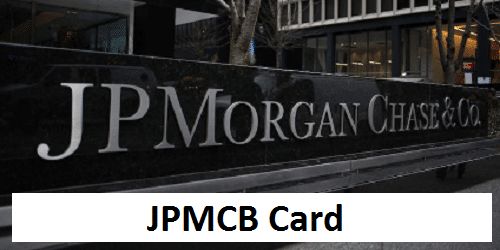Should I Pay Off My Credit Card in Full or Leave a Small Balance? Are you caught in the eternal debate of whether to pay off your credit card in full or leave a small balance? The financial landscape is rife with conflicting advice, leaving many scratching their heads. Fear not! This comprehensive guide aims to demystify the decision-making process, providing you with actionable insights and real-life examples to help you navigate this financial quandary. So, buckle up as we embark on a journey to uncover the pros and cons of both approaches and equip you with the knowledge needed to make an informed decision.
Understanding the Dilemma
The conflicting information on whether to pay off your credit card in full or maintain a balance can be overwhelming. Let’s break down the core aspects of this dilemma before diving into the nitty-gritty details.
What Does “Paying Off in Full” Mean?
“Paying off in full” refers to settling your credit card balance entirely each billing cycle. This means you’re not carrying any debt from one month to the next.
The Small Balance Conundrum
On the flip side, leaving a small balance implies intentionally carrying over a portion of your credit card debt from one month to another. Some believe this can have positive effects on credit scores or financial stability.
The Pros and Cons Unveiled
To help you decide whether to pay off your credit card in full or leave a small balance, let’s explore the advantages and disadvantages of each approach.
Paying Off in Full
Pros:
- Interest Avoidance: Paying your credit card in full each month ensures you won’t incur interest charges, potentially saving you a significant amount of money in the long run.
- Credit Score Boost: Consistently paying off your balance can positively impact your credit score, showcasing responsible financial behavior.
- Financial Freedom: Being debt-free at the end of each month provides a sense of financial security and freedom.
Cons:
- Cash Flow Impact: Paying in full might strain your monthly budget, especially if you’ve made substantial purchases.
- Credit Utilization Fluctuations: Your credit utilization ratio, a crucial factor in credit scoring, might fluctuate more with full payments, impacting your credit score temporarily.
Leaving a Small Balance
Pros:
- Credit Building Myth: Some believe that maintaining a small balance can boost your credit score, but this is a contested notion.
- Cash Flow Management: Leaving a small balance can provide flexibility in your monthly budget, allowing you to allocate funds to other priorities.
Cons:
- Interest Costs: Carrying a balance, even a small one, means you’ll incur interest charges, which can accumulate over time.
- Credit Score Risks: Contrary to popular belief, carrying a balance doesn’t necessarily improve your credit score; it might even have a negative impact.
Addressing the Burning Question: Should I Pay Off My Credit Card in Full or Leave a Small Balance?
Let’s answer the burning question: Should I pay off my credit card in full or leave a small balance?
The resounding consensus among financial experts is that it’s generally better to pay off your credit card in full each month. This approach helps you avoid unnecessary interest charges, positively impacts your credit score, and fosters a habit of responsible financial management.
However, the decision ultimately hinges on your financial situation, goals, and comfort level with debt. If cash flow is tight, leaving a small balance might offer short-term relief, but it comes with the trade-off of paying interest.
Practical Tips for Effective Credit Card Management
Now that we’ve established the importance of paying off your credit card in full, let’s delve into some practical tips to help you manage your credit cards effectively.
Create a Budget:
- Develop a comprehensive budget that includes all your monthly expenses and allocates a portion for discretionary spending.
Emergency Fund:
- Build an emergency fund to cover unexpected expenses, reducing the likelihood of relying on your credit card for emergencies.
Set Up Alerts:
- Enable notifications for your credit card transactions to stay informed about your spending and monitor for any unauthorized activity.
Automate Payments:
- Set up automatic payments to ensure you never miss a due date, reducing the risk of late fees and maintaining a positive credit history.
Review Your Statements:
- Regularly review your credit card statements to identify any discrepancies, unauthorized charges, or subscription services you may want to cancel.
FAQs: Clearing Up Common Misconceptions
Q: Does carrying a small balance improve my credit score?
A: No, carrying a small balance does not necessarily improve your credit score. The key factor influencing your credit score is making timely payments, not the size of your remaining balance.
Q: How does paying off in full impact my credit utilization ratio?
A: Paying off in full can lead to fluctuations in your credit utilization ratio, but these are typically short-term. Consistently paying in full showcases responsible credit management, positively influencing your credit score over time.
Q: Are there any situations where leaving a small balance makes sense?
A: In specific cases where cash flow is a significant concern, leaving a small balance may offer short-term relief. However, it’s crucial to weigh the potential interest costs against the benefits.
Conclusion
In the eternal debate of whether to pay off your credit card in full or leave a small balance, the answer lies in aligning your financial decisions with your goals and values. While paying in full is generally recommended for its financial benefits, it’s essential to consider your unique circumstances.
Remember, financial decisions are not one-size-fits-all. Evaluate your cash flow, credit goals, and comfort level with debt to make an informed choice. By adopting smart credit card management practices and understanding the nuances of paying off your credit card, you can pave the way toward a healthier financial future.
In the journey of financial literacy, knowledge is your greatest asset. Stay informed, stay empowered, and make decisions that align with your financial well-being.






